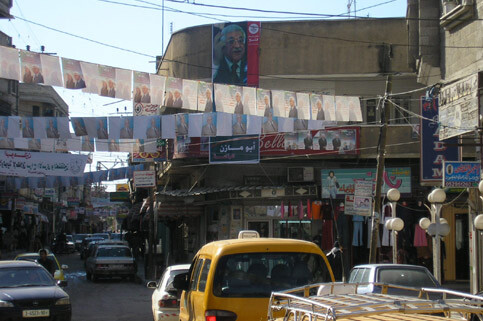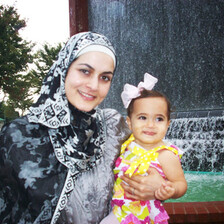Al Jazeera 13 March 2005

Hamas won a significant majority in seven of the 10 municipalities and local councils that held elections on 27 January. The councils consist of 118 elected officials, 77 of whom are Hamas representatives. (Arjan El Fassed)
Palestinians in Gaza have reacted to the Hamas decision to contest legislative elections this July with a mixture of ambivalence and approval.
For fitness instructor Rose Wahid, the decision was not particularly significant. ”You can’t trust anyone any more - I can barely trust myself. The situation is so unstable, and you just don’t know who’s who or what they stand for. How will it change things anyway?”
Wahid initially registered to vote in the recent Palestinian presidential elections, but finally shunned the ballot. She says she will probably do the same in July.
Mixed reaction
Seventeen-year old Salih Haddad, who turns 18 only days after the July election, says he too would boycott the poll even if he had the vote, but for different reasons. “The government is based on secular principles, not those that would support the establishment of an Islamic statement. And by entering, Hamas would be effectively encouraging this system, so I wouldn’t even vote for them.” Haddad said he did register to vote before changing his mind, but the official voting age was changed from 16 to 18 shortly after he did so.
Homemaker Kiyan al-Najar, on the other hand, was excited to hear about the Hamas decision and said she would definitely vote for “all of the Hamas candidates” in July. ”We have to change the entire outfit, and buy ‘new dresses’,” said al-Najar, who voted for opposition candidate Mustafa al-Barghuthi in the January presidential elections.
“I am sure all of the support will be for Hamas. They will change things once they enter parliament. They have set a good precedent for the way they work - they fix what needs to be fixed, and focus on manners and character before anything else.”
Support
Her view was echoed by a majority of Gaza residents last month who voted overwhelming for the Hamas banner in municipal elections. Hamas won a significant majority in seven of the 10 municipalities and local councils that held elections on 27 January. The councils consist of 118 elected officials, 77 of whom are Hamas representatives.
Editor of the Islamic opposition weekly Al-Risala, Ghazi Hamad, said while the announcement was nothing new, the decision itself is indicative of a new kind of pragmatism within Hamas.
“Hamas has become convinced that they need a change of strategy in order to survive. After months of extensive deliberation with their leadership here and abroad, they decided to adopt the policy of participation in its entirety,” said Hamad, who plans to nominate himself for the July elections under the Hamas banner.
Hamad says the Hamas success in last month’s municipal elections encouraged the group to press forward with legislative elections. He predicts Hamas will do just as well in July.
“I predict a very big win for the Hamas candidates. The municipal elections were a test for Palestinian public opinion, and the same people who chose Hamas then will choose them in July. In addition to suffering at the hands of Israelis, the Palestinians are suffering under their own leadership from a lack of clear political vision, from chaos and security lapses, and they look to Hamas to change this.”
Influence sought
According to Hamad, Hamas leaders came to the conclusion that they could no longer use their opposition to the Oslo accords as an excuse for not participating, as it would pose a perpetual hurdle to their desire to become involved in reform, and that now “changes on the ground” have rendered Oslo irrelevant anyway.
Hamas had previously boycotted legislative elections in 1996 because of its opposition to the 1993 Oslo peace accords that mandated the ballots. A spokesperson for the group has said their decision to contest the July elections will put the group in a “position to influence leadership”, though they do not want to find themselves in the leadership seat itself.
Laila El-Haddad is a journalist based in the occupied Gaza Strip. This article was originally published by aljazeera.net and reprinted on EI with permission.





